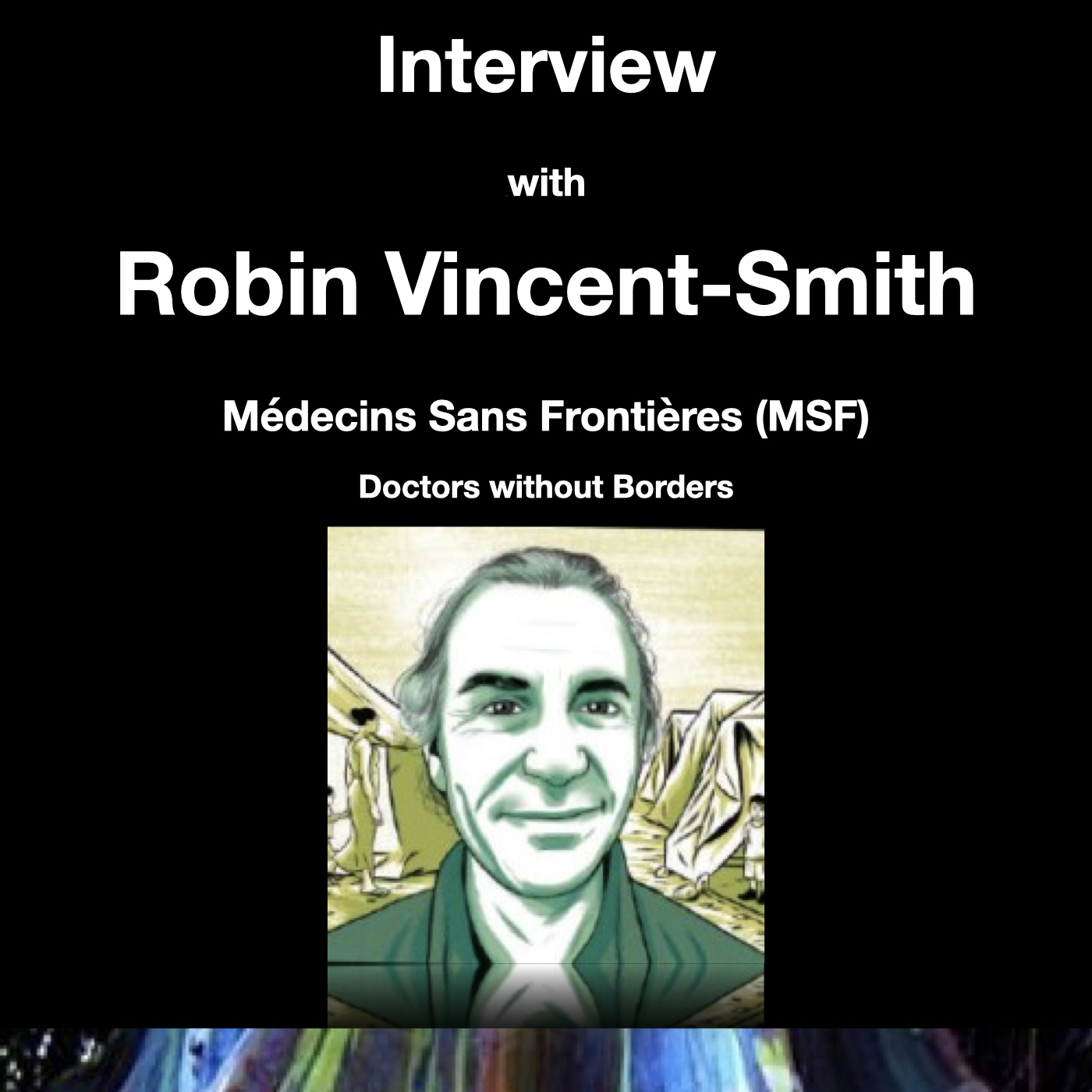11. Surge capacity in our DNA for operations and knowledge


Robin Vincent-Smith has been with MSF for 20 years, working as a logistician in the field for 10 years. An example of his work as a logistician is to think of a hospital that needs water, roof, electricity, communications, transport, security, biomedical equipment, et so on. He organized all that for the medics in the field.
Now, based in Belgium, Robin is in charge of information and knowledge management, a kind of “logistician for soft skills” to use his words. He explains that MSF is above all a “knowledge organization” and they share a lot of their knowledge with ministries of health and local partners.
MSF is Médecins Sans Frontières (Doctors Without Borders) was founded in 1971 in Paris by a group of journalists and doctors. It is an international, independent, medical, humanitarian organization with a worldwide movement of nearly 65,000 people. https://www.msf.org/
Key ideas from our conversation are described below, edited to get the gist at a glance. This is NOT a transcript, so you DO need to listen to the episode to get the full picture!
Certainly we’ve been more inclusive in our decision-making and more inclusive in our strategic meetings
We can include more people around the table virtually, digitally than we could do physically. And so before only those who had enough seniority and hierarchy to pay for a plane ticket, had a space around the table. And now we can include anybody with an internet connection. A good internet connection is still a major barrier in many of the places we work.
It’s flattened the organization to a large extent as well because more people can participate. And more voices are heard often it’d be the same old voice as the senior voices . Now it’s more inclusive. I’m not saying it’s a complete revolution, but it’s definitely a step progress in the direction we’ve been wanting to go in any way for years.
But now when I go to the office, occasionally over the summer, it won’t be with my computer to work. It’ll be to meet people, build trust and relationships.
I will only travel when I need to build relationships. If there’s a new entity somewhere and I need to meet them for the first time I may travel but also think it’s possible to build relationships exclusively online.
The one role that I’ve really played the most in the last year is Zoom DJ. We used Zoom for webinars and meetings and I run a community of “Zoomers” who facilitate online exchanges
We should produce guidelines and guidance in a written format because that’s how a lot of people consume knowledge still.
We also create spaces where knowledge can be exchanged orally.
communities of practice that I was talking about. Online forums, webinars, face-to-face events and recorded video media as well.
Example: when we publish a guideline with the knowledge asset, it won’t come out just as a PDF of 500 pages. There’ll be webinars, discussions, and forums around it.
Classically, when we had a problem, we’d recruit somebody. Problem equals new FTE. (fulltime equivalent, meaning the work that represents one fulltime worker even if it is done by more than one person)
We now recognize that within the existing body of staff, there’s a huge amount of untapped knowledge.
Everybody brings different life experience and work and personal experience from all over the world. And much of the time you can solve many of your problems, just leveraging the existing collective intelligence within the organization.. That’s definitely the first place to start.
And then secondly, you can buy consultancy and if you do so intelligently, then you can import that knowledge to inside the organization.
Example: advantages internal outsourcing as a first step
We were interested in the intersection between the climate and climate change and the environment and environmental degradation and the impact on the health of the patients we serve. We’ve now hired someone to work on this. The person will be more likely to succeed because we’ve already leveraged internal knowledge and we’ve already built a community around climate environment health. We’ve tapped into external consultancies. So we’ve already got that network built.
When a new person arrives on a new mission, he/she is not nearly so impactful as possible because it has not been built up as an internal movement.
Second example: listen to hear how they defined the MSF values and got strong buy-in
People participate in these issues and they’re all doing it in addition to their day-to-day job descriptions.
If people come just to do their job description, there are limits to that, but if you give them opportunities to get involved in the climate environment, health, diversity, equity, inclusion whatever it might be, it’s more rewarding for them as well.
Managers have to be comfortable with the idea that there’s a percentage of your time focused on what you do on your day to day. And there’s a potential of your time which has a contribution to the wider movement.
First published Aug 17, 2021
You can reach Robin on LinkedIn
Nothing matches your request, please try again with a different search term.